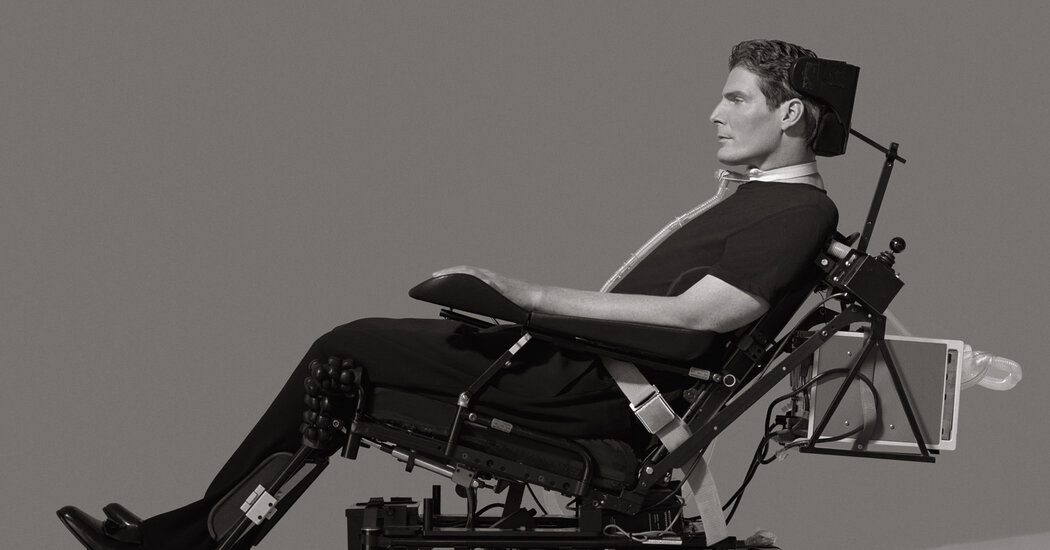The new film chronicles the life of the paralyzed star, covering his friendship with Robin Williams and gut-wrenching details about his care and family.
The documentary “Super/Man: The Christopher Reeve Story” traces the life of the Juilliard-trained actor who found megastardom in the 1970s and ’80s playing Superman, and in 1995 as a different kind of hero, after an accident left him paralyzed from the neck down. It features never-before-seen footage of Reeve, who died in 2004 at 52, chronicling his early days; his pivotal friendship with his Juilliard roommate, Robin Williams; and his transformation, in a wheelchair and on a ventilator, into a leading disability and research advocate. Friends like Glenn Close, Susan Sarandon, Whoopi Goldberg and John Kerry offer their observations; disability rights activists do, too. It’s a thought-provoking tear-jerker.
It also doubles as a family movie, showing Reeve in his role as a father to his three children — Matthew Reeve and Alexandra Reeve Givens from an early relationship that he fled at the height of his fame, and Will Reeve, his son with his wife, Dana Reeve. With unwavering support, she largely gave up her career as a singer and actress to care for her husband. She died of cancer in 2006, just 18 months after him, leaving behind their son, then 13.
The compounded tragedy is leavened by the hope that Reeve embodied, especially with the Christopher & Dana Reeve Foundation, which has invested $140 million in the search for a cure for spinal cord paralysis. The film — which arrived in theaters 20 years after Christopher Reeve’s death, almost to the day — chronicles their determination, and doesn’t flinch from the darkest moments, including money worries and the relentlessness of day-to-day caregiving.
The unvarnished approach — and the timing, with Reeve’s children having reached solid footing as adults — led the siblings to agree to the project after years of turning down other offers, said Will Reeve, 32, a correspondent for ABC News and a look-alike to his father. They hoped their home movies and archival material “would provide a deeper meaning and greater texture to his story,” he said, “and remind folks of the fullness of life that one can have, despite whatever catastrophic injury they may suffer, whatever disability they may have.”
In a video interview from London, where they’re based, the filmmakers Ian Bonhôte and Peter Ettedgui discussed their rationale for not putting Reeve “on a pedestal,” as Ettedgui described it. “It was really important to show how someone who you might think of as being somehow perfect — the ideal hero — how they experience the same insecurities, the same family issues that the rest of us might,” he said.
Here are some takeaways from the film.
